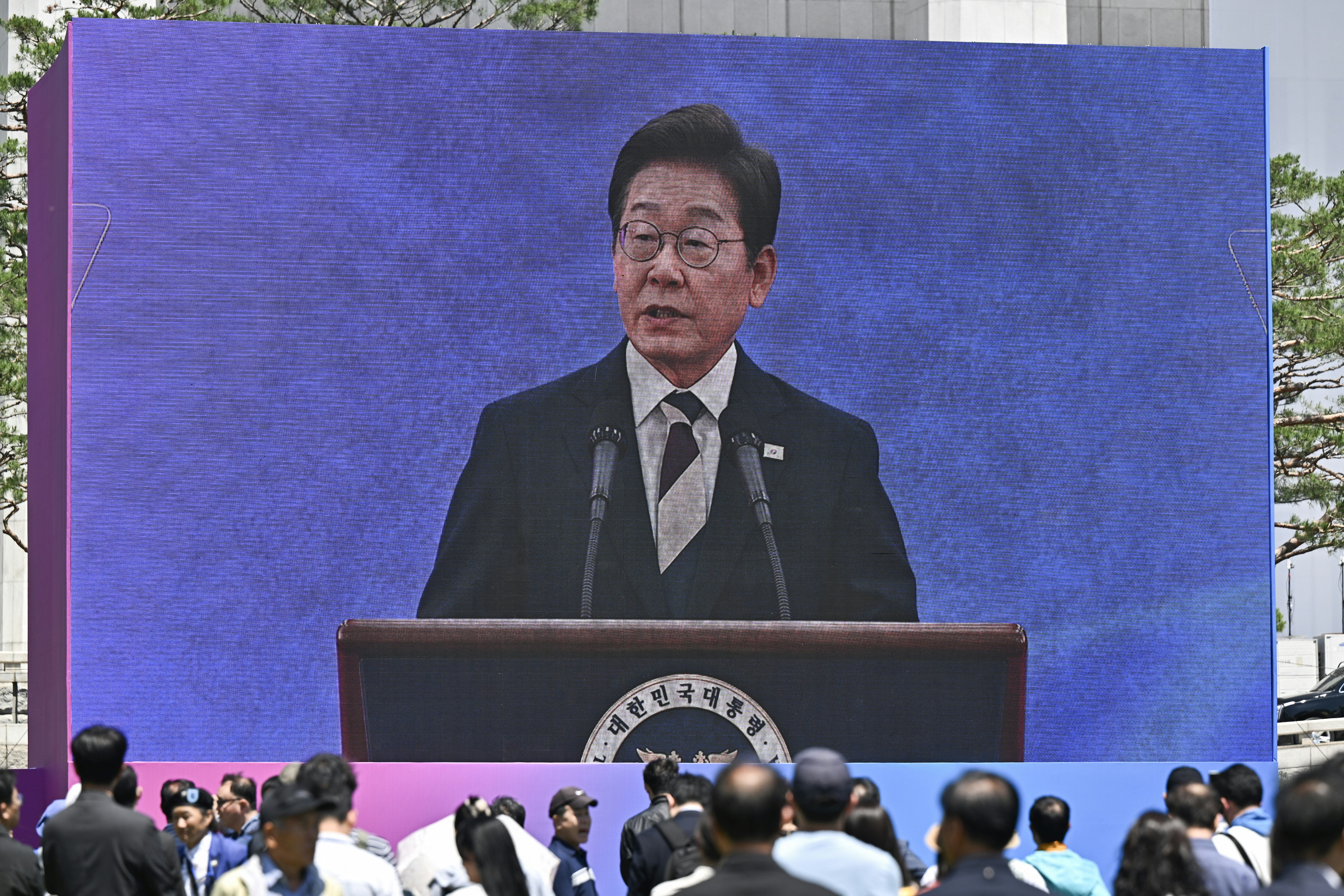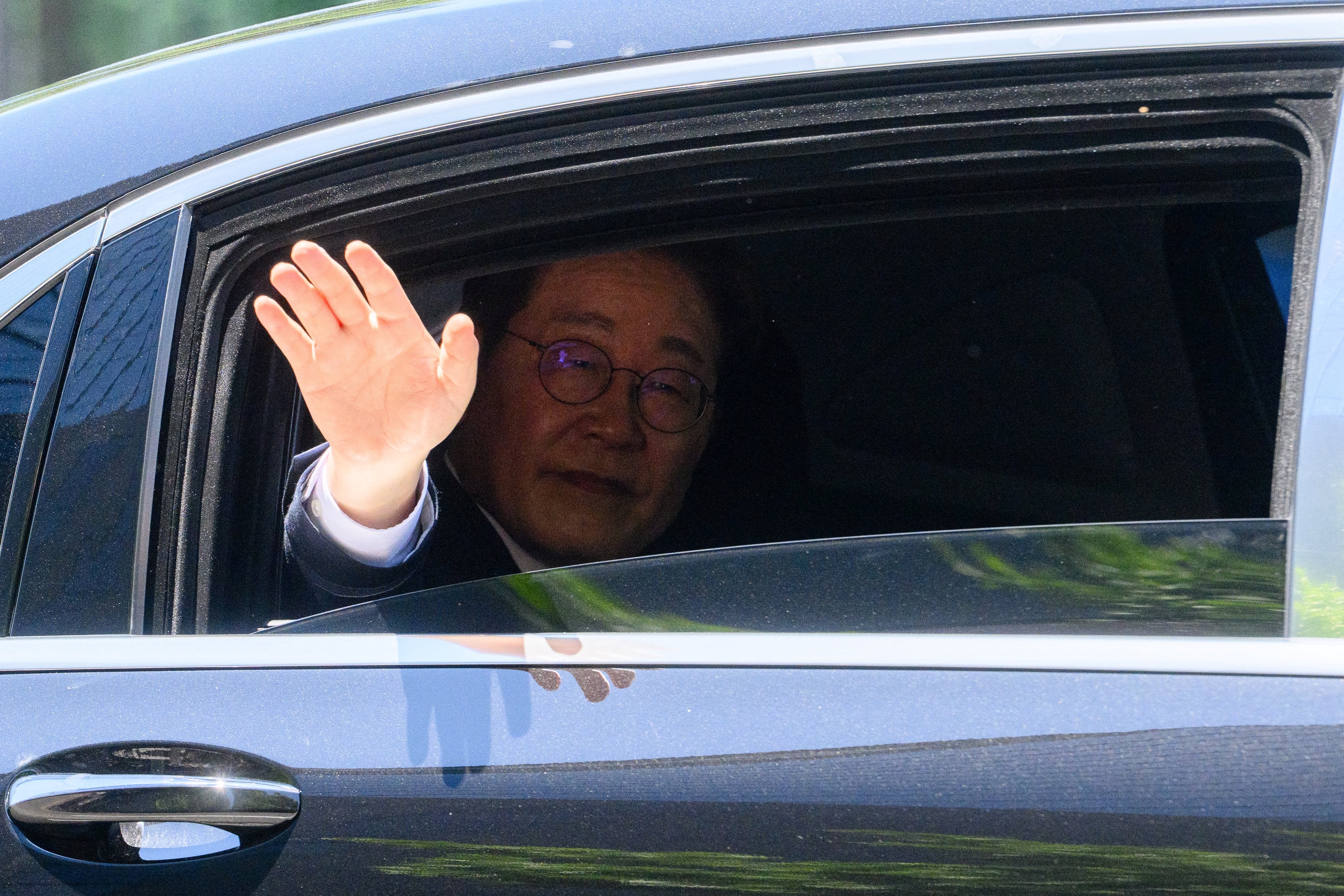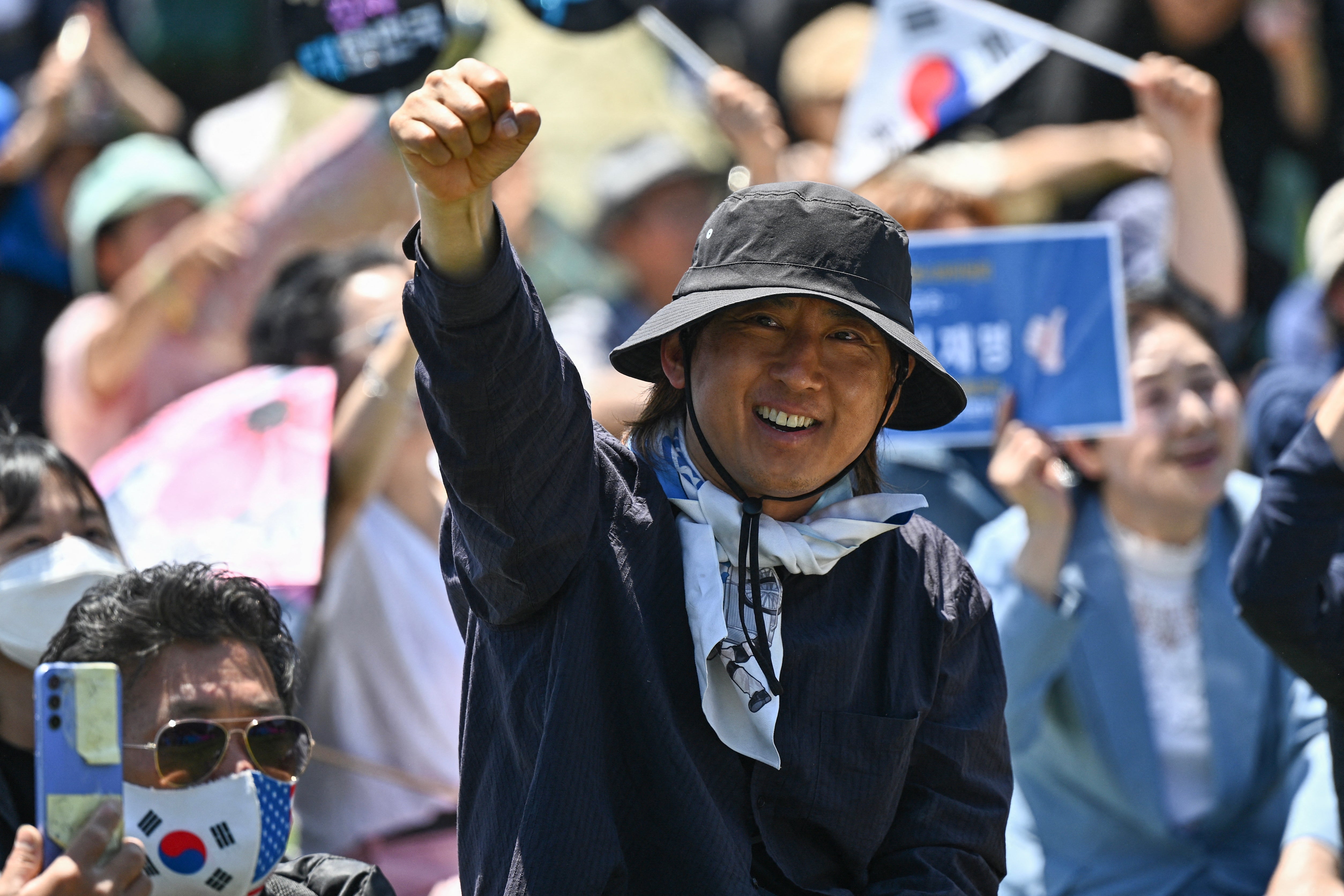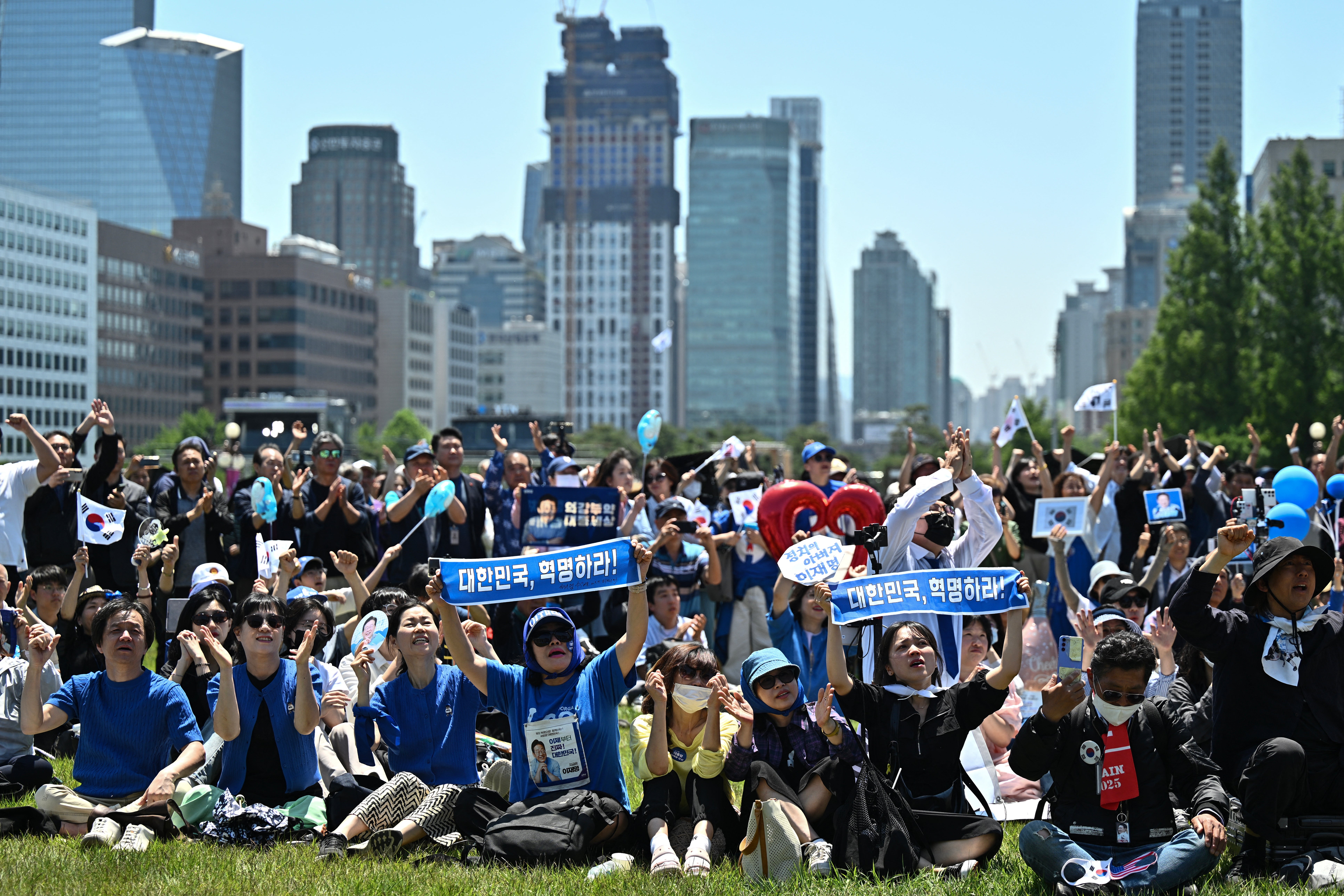South Korea’s new president said he would seek dialogue with rival North Korea to build “lasting peace” while bolstering a trilateral partnership with allies US and Japan.
In his inaugural address, delivered just hours after his election victory, Lee Jae Myung emphasised that his administration would respond to any potential provocation from the North, relying on “strong deterrence” rooted in the South Korea-US military alliance.
He added, however, that Seoul would “open channels of communication and pursue dialogue and cooperation with the North to build lasting peace on the Korean Peninsula”.
Mr Lee, who rose from childhood poverty to become South Korea’s leading liberal politician, vowing to fight inequality and corruption, won a snap election on Tuesday that was caused by the removal of Yoon Suk Yeol over his ill-fated imposition of martial law late last year.
According to the National Election Commission’s final tally on Wednesday, Mr won the presidency with 49.42 per cent of the vote, defeating People Power Party’s Kim Moon Soo, who received 41.15 per cent. Reform Party’s candidate Lee Jun Seok garnered 8.34 per cent, falling short of the 10 per cent threshold required for campaign reimbursement. Democratic Labor Party’s Kwon Young Gook received just 0.98 per cent.
The snap election saw a voter turnout of 79.4 per cent, the highest for a presidential election since 1997.
Given that his Democratic Party commands a dominant majority in the National Assembly, Mr Lee has the political backing to be South Korea’s most powerful leader since its democratic transition in 1987. Mr Lee’s term began immediately without the usual two-month transition period after the National Election Commission formally confirmed his victory on Wednesday morning.
Referring to the global trade chaos triggered by US president Donald Trump’s tariffs, Mr Lee warned in his speech that such economic shifts threatened his country’s survival.
“The rapid changes in the global order such as rising protectionism and supply chain restructuring, pose a threat to our very survival,” he said.

Mr Lee vowed to heal a nation deeply divided by former leader Yoon Suk Yeol’s imposition of martial law, his impeachment and eventual removal from office.
“It is time to restore security and peace, which have been reduced to tools of political strife; to rebuild livelihoods and the economy damaged by indifference, incompetence and irresponsibility; and to revive democracy undermined by armoured vehicles and automatic rifles,” he said. “No matter whom you supported in this election, I will serve as a president for all to embrace and serve every citizen.”
The new president promised to take a “pragmatic” and “market-oriented” economic approach focused on boosting growth and advancing technologies like AI and semiconductors.
He also pledged to “make a government that supports and encourages, not one that controls”.

He said he would pursue “pragmatic” diplomacy and boost a trilateral Seoul–Washington–Tokyo cooperation based on the South Korea-US alliance. “We will strengthen South Korea-US-Japan cooperation based on a solid Korea-US alliance and approach relations with neighbouring countries from the perspective of practicality and national interest,” he said.
In a phone call with Joint Chiefs of Staff Kim Myung Soo, Mr Lee asked the military to keep a track of North Korean moves and maintain readiness, according to local media.
He later visited the national cemetery in Seoul to pay respects to late Korean leaders, patriots, and war dead buried there.

At about 1.14am local time, as soon as it became clear that he had clinched victory, Mr Lee spoke in front of the National Assembly.
“Fellow Koreans, your first mission for me is to bring the insurrection to a definitive end and ensure the military never uses your own weapons against you in a coup,” he said.
“I pledge to restore our democracy and build a world in which your sovereignty is respected inside the community of our democratic republic, a world in which we tolerate and cooperate with each other.”
US secretary of state Marco Rubio welcomed Mr Lee’s election, reaffirming Washington’s commitment to its alliance with South Korea.
“We congratulate Lee Jae Myung on his election as the next president of the Republic of Korea. The United States and the Republic of Korea share an ironclad commitment to the alliance grounded in our Mutual Defence Treaty, shared values and deep economic ties,” he said in a statement.
“We’re also modernising the alliance to meet the demands of today’s strategic environment and address new economic challenges. We will also continue to deepen US-Japan-ROK trilateral cooperation to bolster regional security, enhance economic resilience, and defend our shared democratic principles.”

Japan’s prime minister, Shigeru Ishiba, emphasised continued cooperation with the neighbouring nation. “The importance of Japan-South Korea relations remains unchanged under the current strategic environment,” he said. “The cooperation among Japan, South Korea and the United States is also important.”
Mr Ishiba also said the two countries should hold a bilateral summit as soon as possible.
European Council president Antonio Costa expressed hope of deepening ties with Seoul, praising South Korea’s global role and shared democratic values. “Looking forward to deepening our strategic partnership as key allies in the Indo-Pacific and beyond,” he said.

